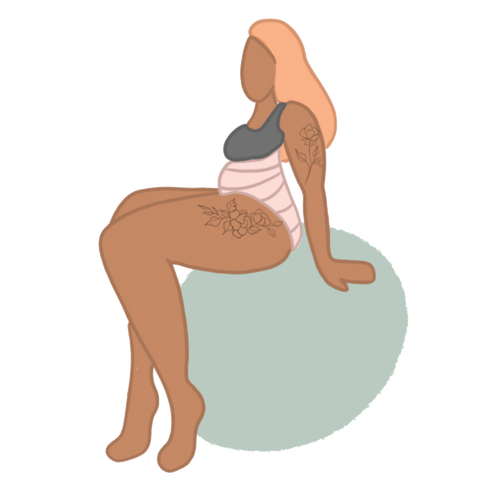Ensuring Baby Safety: A Guide for Baby Safety Month

Every parent knows that the safety of their baby is of paramount importance. That's why Baby Safety Month is such an important time for families to reevaluate their homes and routines to ensure the well-being of their little ones. As your baby grows and explores the world around them, it's crucial to take steps to create a safe environment. In this blog post, we'll cover essential tips and precautions to help you celebrate Baby Safety Month by making your home as safe as possible for your baby.
- Safe Sleep Practices
One of the most critical aspects of baby safety is ensuring your infant sleeps soundly and safely. Follow these guidelines:
- Back to Sleep: Always place your baby on their back for naptime and bedtime to reduce the risk of Sudden Infant Death Syndrome (SIDS). Once baby is able to roll, then you can ease down on the panic as if they will then be able to get themselves in different positions.
- Crib Safety: Ensure your baby's crib is free from pillows, blankets, stuffed animals, and bumper pads. The mattress should be firm and fit snugly in the crib.
- If bed-sharing, be sure to follow the Safe Sleep Seven.
- Baby-Proofing Your Home
Babies are naturally curious, and as they start to crawl and explore, they can get into potentially dangerous situations. Baby-proof your home by:
- Outlet Covers: Cover electrical outlets to prevent your baby from sticking objects into them.
- Cabinet Locks: Install locks on cabinets and drawers that contain household chemicals, cleaning supplies, or sharp objects.
- Gates: Use safety gates to block off staircases and other hazardous areas.
- Door Stoppers: Use door stoppers to prevent doors from slamming shut on tiny fingers.
- Safe Feeding and Mealtime
As your baby begins to eat solid foods, it's important to ensure their safety during mealtime:
- High Chair Safety: Always strap your baby into their high chair to prevent them from falling.
- Supervision: Never leave your baby unattended while eating.
- Car Safety
Proper car seat use is crucial for your baby's safety while traveling:
- Rear-Facing Car Seat: Use a rear-facing car seat for infants until they reach the weight or height limit specified by the manufacturer.
- Proper Installation: Ensure the car seat is correctly installed following both the car's and the car seat manufacturer's instructions. You may also opt to schedule a car seat technician visit to ensure you are using your car seat correctly.
- Safe Bathing Practices
Bath time can be a fun and bonding experience, but it also requires vigilance:
- Never Leave Unattended: Never leave your baby unattended in the bath, even for a moment.
- Check Water Temperature: Test the water temperature to ensure it's comfortable for your baby and not too hot.
- Poison Prevention
Toxic substances can be found in various places around the house. Take precautions by:
- Locking Away Chemicals: Keep cleaning supplies, medications, and chemicals out of your baby's reach in locked cabinets.
- Proper Storage: Store poisonous substances in their original containers and away from food.
- Regular Safety Inspections
As your baby grows, revisit safety measures and make necessary adjustments to accommodate their changing needs.
- Regularly Inspect Equipment: Check baby gear such as strollers, cribs, and car seats for recalls or signs of wear and tear.
- Update Baby-Proofing: As your baby becomes more mobile, update and expand baby-proofing measures.
Baby Safety Month serves as a reminder to prioritize your baby's well-being by creating a safe and nurturing environment. By following these essential safety tips and continuously staying informed about best practices, you can ensure that your baby grows and thrives in a secure and loving home. Remember, there's no such thing as being too cautious when it comes to your child's safety. Happy Baby Safety Month!





